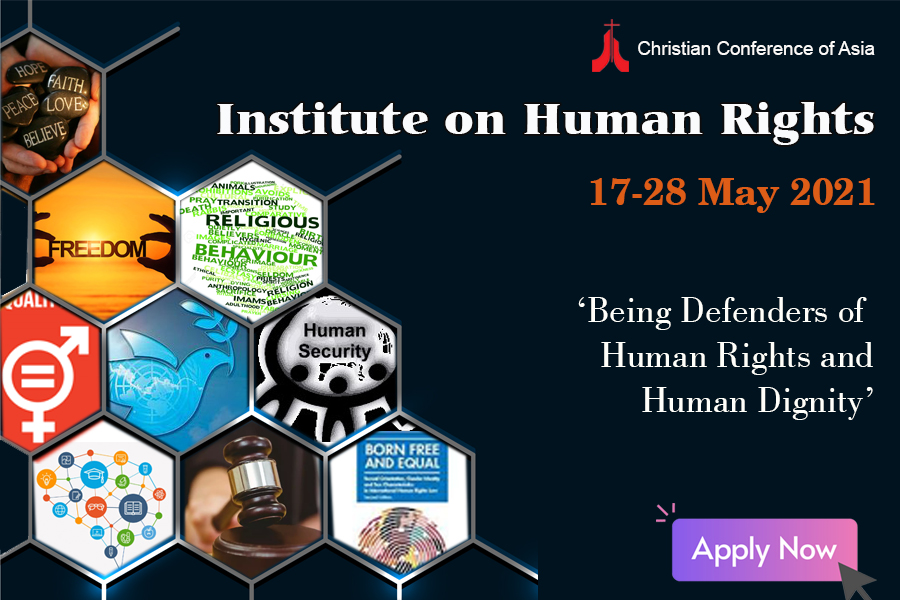Applications invited for CCA’s Human Rights Training Programme
 The Institute on Human Rights (IHR) is a new initiative of the Christian Conference of Asia (CCA) to train prospective human rights and social activists from among young Christians in Asia.
The Institute on Human Rights (IHR) is a new initiative of the Christian Conference of Asia (CCA) to train prospective human rights and social activists from among young Christians in Asia.
Spanning over a period of two weeks from 17 to 28 May 2021, the intensive training course is designed to enable young people to understand the principles of human rights and human dignity from Christian theological perspectives as well as to help them to understand the international human rights instruments and protection mechanisms.
The theme of IHR–2021 is “Being Defenders of Human Rights and Human Dignity”.
The IHR will be conducted virtually.
The resource persons will include a wide range of internationally acclaimed human rights defenders practitioners, academics, and legal luminaries specialising in international human rights law and human rights protection mechanisms, including experts in human rights advocacy at the UN.
The syllabus for the course will cover the principles and foundations of human rights, human rights from biblical theological perspectives, human rights from interfaith perspectives, international human rights instruments and human rights protection mechanisms, human rights advocacy at the UN, and specific human rights issues in the Asian context.
The IHR will help prospective human rights defenders to develop their skills on the practical application of theoretical and legal human rights instruments while being engaged in defending human rights in their respective contexts.
Admissions to IHR–2021 will be limited to 25 participants between the ages of 25 and 35. Participants will be selected from among applicants who have an interest and commitment to human rights advocacy and ability to communicate in English.
The deadline for receiving completed applications for IHR–2021 is 10 April 2021.
For more information, please refer to the key documents below:
- IHR–2021 — Application Form
- IHR–2021 — Background Information
- IHR–2021 — Letter to CCA Member Churches and Councils










